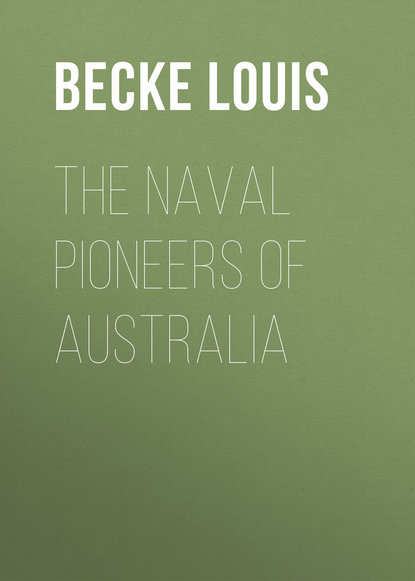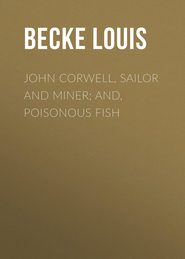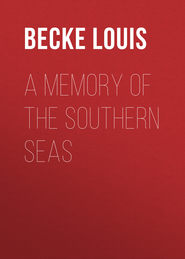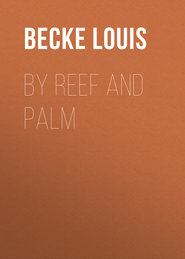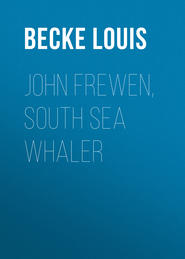По всем вопросам обращайтесь на: info@litportal.ru
(©) 2003-2024.
✖
The Naval Pioneers of Australia
Настройки чтения
Размер шрифта
Высота строк
Поля
And again in November of the same year he wrote:—
"I have already informed you of a permission I received, after the departure of all the prisoners of war, to leave my place of confinement, and reside in the country on account of my health. I have now for nearly three months resided in this district, almost in the middle of the island, with a very agreeable and respectable family, from whom I receive every kindness and attention, and with the permission to extend my walks six miles round.
"Since my residence in this district I have not had the least communication with General de Caen, but the liberty I now enjoy is a sufficient proof that he has ceased to consider me as a spy; and I firmly believe that, if he had not said to the French Government during the time of his unjust suspicions of me that he should detain me here until he received their orders, he would have gladly suffered me to depart long since, for he has the character of having a good heart, though too hasty and violent."
By this time all other prisoners had been exchanged, and Flinders alone, with an old, lame seaman (his servant) were the only English remaining.
It was not altogether wonderful that the captive should be forgotten. Trafalgar was fought while Flinders was a prisoner, and in Europe people could hardly be expected to remember one solitary prisoner of the French so far away.
What delay was in those days may be seen from the fact that a letter arrived on July 18th, 1807, from Sir Edward Pellew, commanding the Duncan, Madras Roads, June 21st, stating that papers had been really sent for the captive's release. A private letter was enclosed inviting Flinders to come and stop in India with Pellew. 1807 The copy of the letter Flinders received drove the resentment deeper into his heart, for it stated that the Paris authorities approved of de Caen's action, but granted Flinders liberty in pure generosity. In July, 1804, this letter had been approved by the authorities; in March, 1806, it had been signed by the Emperor; and in July, 1807, it had arrived in Mauritius, and yet the copy that left London in December reached Mauritius first. Flinders wrote again to de Caen, and was told to "wait a bit." Was ever such an unfortunate man as Matthew Flinders?
In December, 1809, when Flinders had been prisoner in the island seven years, the English blockaded the port, and the Englishmen were kept closer than ever. Then arrived the Harriet to exchange prisoners, and in March of the following year Flinders was informed that he was to be one of the men exchanged. But it was actually July, 1810, before the Harriet got away, for the English, not knowing that they were detaining their own countrymen, kept such a close blockade that the ship could not get out to sea; and when she did get outside, notwithstanding many attempts on the part of the captain to communicate with an English ship and put Flinders on board, he could not overtake one. It turned out afterwards that the English fleet had heard of Flinders being on board the Harriet and gave her a wide berth, thinking that by this means the French would understand that she was at liberty to pursue her way to Europe and land Flinders without molestation from his countrymen.
Ultimately Flinders reached the Cape of Good Hope, and from thence England. When he arrived he received a warm enough welcome from his relatives and immediate friends, but the public had too many stirring events to talk about to think of him, and so publicly his services were practically forgotten. Among other indignities he suffered, he found that the charts taken from him by de Caen had been appropriated to Baudin's exploring expedition. The remainder of his life he devoted to writing his book, An Account of a Voyage to Terra Australia, which was published on the very day of his death (July 14th, 1814). Almost his last words were:—
"I know that in future days of exploration my spirit will rise from the dead, and follow the exploring ships."
Flinders had married in 1801 Ann, daughter of Captain 1814 Chappell, and by her he had one daughter, Mrs. Annie Petril, who was in 1852 granted, by the joint Governments of New South Wales and Victoria, a pension of £200 a year, which she enjoyed until her death in 1892.
CHAPTER X.
BLIGH AND THE MUTINY OF THE "BOUNTY"
Bligh arrived in New South Wales, and relieved King as governor, in August, 1806. His two years' administration in the colony is noteworthy for nothing but the remarkable manner of its termination. Just as Sir John Franklin's name will live as an Arctic explorer and be forgotten as a Tasmanian governor, so will the name of Bligh in England always recall to mind the Bounty mutiny and scarcely be remembered in connection with Australian history.
Any number of books, and a dozen different versions, have been written of the mutiny. There is Sir John Barrow's Mutiny of the "Bounty," which, considering that the author was Secretary to the Admiralty, ought to be, and is, regarded as an authority; there is Lady Belcher's Mutineers of the "Bounty," by far the most interesting, and probably, notwithstanding a strong anti-Bligh bias, an impartial account of 1806 facts. It is no wonder Lady Belcher was no admirer of Bligh. Heywood, the midshipman who was tried for his life, was her step-father, and she had very good reason to remember Bligh with no friendly feeling. There are other books, some of them as dull as they are pious and inaccurate, others containing no quality of accuracy or piety, and only dull; and there is Bligh's own narrative of the affair, remarkable for its plain account of the mutiny and the writer's boat voyage and the absence of a single word that could throw a shadow of blame upon the memory of Captain Bligh. Byron's poem of "The Island" is, of course, founded on the Bounty mutiny, but the poet has used his licence to such an extent that the poem, which, by the way, some of the poet's admirers say is one of his worst, has no resemblance to the facts. In 1884 Judge McFarland, of the New South Wales District Court, wrote a book on the mutiny, and this work, for the reason that it was published in a remote part of the world, is little known; yet it is probably the best book on the subject. The Judge marshals his facts with judicial ability, and he sums up in such a manner the causes leading to the mutiny, that if Bligh were on trial before him we are afraid the jury would convict that officer without leaving the box.
A critic whose opinion is entitled to the greatest weight, having read the manuscript of this and the next chapter before it went to press, considered that, although we had written of Bligh's harshness to his men as proved, we had not specifically alluded to the proof. For this reason, and because the story of the Bounty mutiny, like every event that happened in the South Seas a hundred years ago, is interwoven with the early history of Australia, we propose to retell the story shortly. And since it seems that Bligh's tyrannical character is still a fact not taken for granted by everyone, we will endeavour, not to justify the mutiny, but to show that, by all the rules of evidence, Bligh's behaviour to his ship's company is proved to have been of the aggravating character alleged by his shipmates, and that the Bounty was not, as Bligh represented her to be, what is called by sailors "a happy ship."
Another reason for retelling the story is, that, notwithstanding that the name of the Bounty sounds most familiar in most people's ears, yet we have some evidence that the present generation has 1776 almost forgotten nearly everything relating to it.
A few years ago one of the authors went to Norfolk Island, so remote a spot that visits are counted not so many to the year, but so many years to a visitor. It was thought that an account of the descendants of the Bounty mutineers would be of interest to English magazine-readers. Everyone, it was supposed, knew all about the Bounty mutiny, so half a dozen lines were devoted to it, the rest of the space to the present state of the old Pitcairn families. The article was hawked about to most of the London magazine offices, and was invariably rejected, on the ground that no one remembered the Bounty mutiny, and that an account of the event would be much more acceptable. It appears from many recently printed allusions to the mutiny that the magazine editors rightly judged their public.
Bligh's first visit to the South Seas was when, under Cook, he sailed as master of the Resolution in 1776-9. A native of Plymouth, of obscure parentage, he was then about twenty-three years old, and had entered the service through the "hawse-pipe."
By Cook's influence, he was in 1781 promoted lieutenant, and later, through the influence of Sir Joseph Banks, was given the command of the Bounty, which sailed from Spithead on December 23rd, 1787, for Tahiti.
The Bounty was an armed transport of 215 tons burden. Her mission was to convey breadfruit to the West Indian islands, the planters having represented to George III. that the introduction of the plant would be very beneficial as an article of food. The ship was fitted up in a manner peculiar, but adapted to the service she was upon. She was 90 feet long, her greatest beam 24 feet, and her greatest depth of hold about 10 feet. This limited space was divided in the following manner: 19 tons of iron ballast and provisions and stores for the ship's total complement (46 persons) in the hold; in the cockpit cabins for some subordinate officers; on the 'tween-decks a small room for Bligh to sleep in, another for a dining and sitting-room, and a small cabin for the master. Then from right aft to the after-hatchway a regular conservatory was rigged up. Rows and rows of shelves, with garden-pots for the plants, ran all round; regular gutters were made to carry off the drainage when the plants were watered, and water being precious, the pots drained into tubs, so that the water might be used again, while special large skylights admitted air and light. On the foreside of this cabin lived the more subordinate officers, and still further forward the crew.
The crew under Bligh consisted of a master (Fryer), a gunner, boatswain, carpenter, surgeon, 2 master's mates, 2 midshipmen, 2 quarter-masters, a quarter-master's mate, boatswain's mate, a carpenter's mate and a seaman carpenter, a sail-maker, armourer, and a ship's corporal, 23 able seamen, and a man who acted as clerk and ship's steward. Besides there were two gardeners who had been selected by Sir Joseph Banks.
The Bounty, on her way to Tahiti, touched at Teneriffe, Simon's Bay, and at Adventure Bay, Van Diemen's Land. On arrival at Tahiti, she spent nearly five months in Matavai Bay loading the breadfruit plants. Now, according to Bligh, up to this point all had gone well on the ship, and everyone had seemed happy and contented; according to every other person on board, whether friendly or inimical to Bligh, there was a good deal of unpleasantness and discontent during the whole passage. According to Bligh, the beauty of the Tahitian women, the delightful ease and charm of island existence in contrast to the hardships of the sailor's life, tempted certain of the men into what followed; according to all other witnesses, it is admitted that the men were so tempted, that desertions took place, and the deserters were taken and severely punished before the ship left the island. But, say certain witnesses, when the mutiny broke out the seductions of Tahiti were less the cause of the outbreak than the tyrannical and coarse conduct of Bligh.
In due course the ship sailed in continuation of her voyage. Then on the night of Monday, April 28th, 1789, the master, John Fryer, had the first watch, the gunner, William Peckover, the middle watch, and Fletcher Christian, the senior master's mate, the morning watch. Just as the day was breaking, when the ship was a few miles to the southward of Tofoa, one of the Friendly Island group, Bligh was rudely awakened by the entrance to his cabin of Christian and three of the crew. He was told he would be killed if he made the least noise, and Christian, armed with a cutlass, the others with muskets and fixed bayonets, escorted him to the deck, after first tying his hands behind him. The master, the gunner, the acting surgeon, Ledward (the surgeon had died and was buried at Tahiti), the second master's mate, and Nelson, one of the botanists, 1789 were at the same time secured below. The boatswain, carpenter, and clerk were allowed to come on deck, and the boatswain, acting under threats from the mutineers, hoisted out the launch.
Bligh used every endeavour, first by threats, and then by entreaties and promises of forgiveness, to induce the crew to return to their duty, and Fryer, the master, if he had received the least support, would also have made an attempt to retake the ship. But the mutineers threatened instant death to any who attempted resistance.
The boat being hoisted out, the names of certain of the officers and crew were called, and these were ordered to enter her. Bligh was compelled to follow, and she was then dropped astern. Christian handed Bligh a sextant and a book of nautical tables, saying, as he did so, "This book is sufficient for every purpose, and you know, sir, my sextant is a good one." Four cutlasses, a 28-gallon cask of water, 150 pounds of bread, 6 quarts of rum, 6 bottles of wine, 32 pounds of pork, twine, canvas, sails, some small empty water-casks, and most of the ship's papers were put in the boat, and she was cast adrift.
At the last moment, according to Bligh, Christian, in reply to a question as to what sort of treatment was this in return for all the commander's kindness, said, "That, Captain Bligh, that is the thing: I am in hell"; according to the evidence at the court-martial, not of mutineers, but of the master and other officers who were cast adrift from the Bounty, what Christian did say was in reply to entreaties to reconsider what he was doing, when his words were—"No, no. Captain Bligh has brought all this on himself: it is too late; I have been in hell for weeks past."
With Bligh in the boat were eighteen persons, and twenty-five remained on the Bounty. The boat was 23 feet in length, 6 feet 9 inches in breadth, and 2 feet 9 inches in depth. When loaded with all these people and her stores, she had not seven inches of freeboard.
From the morning when the boat was cast adrift till forty-two days later, when her unhappy company were safely landed at Timor, Bligh's behaviour and the behaviour of those under him is a noble example of courage, endurance, and resourcefulness.
They first attempted to land at Tofoa, one of the Friendly Islands, but were driven off by the natives, and one of the seamen was killed. Bligh, therefore, resolved to land nowhere until he came to the coast of Australia, or New Holland, as it was then called.
On the twenty-eighth day they made an island off the coast, to which they gave the name Restoration. Up to this time, they had lived on such food as they had, served out in a pair of cocoa-nut shell scales, the ration being a pistol-ball's weight per man morning, noon, and night, a teaspoonful of rum or wine, and a quarter of a pint of water. Their food was occasionally varied when they were able to catch boobies. The birds were devoured raw, and the blood drunk, each man receiving his portion with the utmost fairness.
Restoration Island is one of the many little islets that stud the sea-coast from the Barrier Reef right through Torres Straits, and Bligh's people found upon it and other similar spots welcome opportunity to stretch their cramped limbs, besides obtaining fresh water, and plenty of oysters. Then they continued their journey, making their way through Torres Straits by a channel still known as Bligh's Passage, and taking a week from the time of sighting the Australian coast to the time of leaving it.
A couple of incidents that happened at this time show how it was that Bligh kept his men so well in hand. One man was sent out to look for birds' eggs; the sailor, it was discovered, had concealed some of them. Says Bligh, "I thereupon gave him a good beating. On another occasion one of the men went so far as to tell me, with a mutinous look, that he was as good a man as myself. It was not possible for me to judge where this would end if not stopped in time; therefore, to prevent such disputes in future, I determined either to preserve my command or die in the attempt, and seizing a cutlass, I ordered him to take hold of another and defend himself. On this he called out that I was going to kill him, and made concessions. I did not allow this to interfere with the harmony of the boat's crew, and everything soon became quiet."
On the evening of June 3rd, the twenty-third day from leaving Tofoa, they left the coast of Australia on the north-western side, and stood away for Timor, where they arrived nine days later, and were received with the greatest kindness by the Dutch officials and merchants. Their journey of about 3620 miles had taken forty-two days. One man had lost his life by the attack of savages, and Nelson, the botanist, 1790-1791 Elphinstone, a master's mate, two seamen, and the acting surgeon, were attacked by the Batavian fever and died. Bligh and the remainder of his men secured passages home, and arrived in England in March, 1790.
In the summer of 1791 he was promoted commander, given the command of the Providence, with an armed tender, the Assistance, and sent to carry out the breadfruit transplantation idea, which he satisfactorily accomplished. But the soil of the West Indian islands would not successfully grow the fruit, and the people of the West Indies do not like it.
Meantime the Pandora frigate, Captain Edwards, was sent out to search for the mutineers. At Tahiti she found no Bounty, but two midshipmen, Heywood and Stewart, and twelve petty officers and seamen of the ship. These people gave themselves up as soon as the Pandora entered Matavai Bay, and they informed Captain Edwards that the Bounty had sailed away with the remainder of the people, no one knew whither. Two other seamen had been left behind, but one of these had murdered his comrade and a native man and child, and was himself killed by the natives for these crimes.
Stewart and Heywood, master's mate and midshipman, who were very young—the latter was fifteen at the time of the mutiny—declared to the captain of the Pandora that they had been detained on the Bounty against their wishes; but Captain Edwards believed nothing, listened to no defence. He built a round-house on the quarter deck, and heavily ironing his prisoners locked them up in this.
Stewart while on shore had contracted a native marriage, and after he had left in the Pandora his young wife died broken-hearted, leaving an infant daughter, who was afterwards educated by the missionaries, and lived until quite recent times.
In "Pandora's Box," as Captain Edwards' round-house came to be called, the fourteen prisoners suffered cruel torture, and nothing can justify the manner in which they were treated. The frigate sailed accompanied by a cutter called the Resolution, which had been built by, and was taken from, the Bounty's people at Tahiti on May 19th, 1791, and spent till the middle of August in a fruitless search among the islands for the remainder of the mutineers. The Pandora then stood away for Timor, having lost sight of the Resolution, which Edwards did not see again until he reached Timor.
On August 28th the ship struck a reef, now marked on the chart as Pandora's Reef, and became a total wreck. All this time the prisoners had been kept in irons in the round-house. The ship lasted until the following morning, when the survivors—for thirty-five of the Pandora's crew and four of the prisoners (among them the unfortunate Stewart) were drowned—got into the boats and began another remarkable boat voyage to Timor. While the vessel was going down, instead of the prisoners being released, by the express order of Captain Edwards eleven of them were actually kept ironed, and if it had not been for the humanity of boatswain's mate James Moulter, who burst open the prison, they would have all been drowned like rats in a cage. This is not the one-sided version of the prisoners only, but is so confirmed by the officers of the Pandora that Sir John Barrow in his book says that the "statement of the brutal and unfeeling behaviour of Edwards is but too true."
There were ninety-nine survivors, divided between four boats, and they had 1000 miles to voyage. They landed at Coupang on September 19th, after undergoing the greatest suffering, aggravated in the case of the prisoners by the most wanton cruelty on the part of Edwards. From here they were sent to England for trial, arriving at Spithead on June 19th, 1792, four years and four months after they had left in the Bounty, of which time these poor prisoners had spent fifteen months in irons. In the following September the accused were tried by court-martial at Portsmouth Harbour. Bligh was away on his second breadfruit voyage, but he had left behind him as much evidence as he could collect that would be likely to secure conviction, and one of the officers so backed up his statements that young Heywood, a boy of fifteen, be it remembered, came near to being hanged. Bligh's suppression of facts which would have proved that the youngsters Stewart and Heywood were mere spectators at the worst of the mutiny, Sir John Barrow suggests, has "the appearance of a deliberate act of malice."
The result of the trial was the just acquittal of four of the petty officers and seamen, the conviction of Heywood, of Morrison, boatswain's mate (a man of education, who had kept a diary of the whole business), and of four seamen. Three of these last, one of them seventeen years of age at the time of the mutiny, were hanged in Portsmouth 1807 Harbour. Heywood, Morrison, and a seaman named Muspratt were pardoned. It was plain that the authorities recognized the innocence of these men, for Heywood made a fresh start in the service, and served with distinction, dying a post-captain in 1831, and Morrison was drowned in the Blenheim, of which ship he was gunner when she foundered off the island of Rodriguez in 1807.
What had become of the Bounty? In March, 1809, there reached the Admiralty an extract from the log of an American whaler, commanded by Matthew Folger. This extract showed the Pitcairn Island, hitherto scarcely known and supposed to be uninhabited, had been visited by the whaler, which found thereon a white man and several half-caste families. The man was the sole survivor of the Bounty mutineers, and the half-caste families were the descendants of the others by their Tahitian wives. In proof of his statements, Folger brought away with him the chronometer and azimuth compass of the Bounty. War was then going on, and England paid little attention to the news, until in September, 1814, two frigates, the Briton and the Tagus, visited Pitcairn, when the end of the Bounty story was told to the commander by the sole survivor.
When the Bounty left Tahiti, Christian took with him Young, a midshipman; Mills, gunner's mate; Brown, one of the two botanists; and Martin, McCoy, Williams, Quintall, and Smith, seamen. These men were accompanied by five male islanders from Tahiti and Tubuai (in which last place they had attempted to form a settlement and failed), three Tahitian women, wives of the Tahitians, and ten other Tahitian women and a child.
The Bounty was beached and burnt, and from her remains and the island timber the mutineers built themselves homes. Soon dissensions arose, murder followed, and within a few years after landing every Englishman save Smith was dead, nearly all of them dying violent deaths. Smith changed his name to John Adams, took a Bible from the Bounty's library as his guide, and set to work to govern and to train his colony of half-caste children.
From 1815 Pitcairn became a pet colony of the English people, and every ship that visited it brought back stories of the piety and beautiful character of its population. Smith or Adams died in 1829. He had long before been pardoned by the English Government, and 1829 the good work he began was carried on by Mr. Nobbs, one of several persons who from time to time, attracted by the story of life at Pitcairn, had managed to make their way to the island.
In 1856 the greater portion of the Pitcairn families were removed to Norfolk Island, which the English Government had abandoned as a penal settlement, giving up to them all the prison buildings as a new home.
For years after, Norfolk Island, like Pitcairn, was known as the home of the descendants of the Bounty mutineers, and was talked of all over the world in the same strain as that other ideal community at Pitcairn, but civilization has now worked its evil ways. No longer is Norfolk Island governed in patriarchal fashion. It has been handed over by the Imperial Government for administration by the colony of New South Wales, and in a few years longer all that will remain of its Bounty story will be the names of Christian, Young, McCoy, Quintall, and the rest of them—still names which indicate the "best families" of the island.
To this day it is a mystery exactly how and when Christian met his death. The sole survivor of the mutineers, Smith (alias Adams), when questioned, went into details regarding the desperate quarrels of his comrades, and how they came by violent deaths; but whether his memory, owing to old age, had failed him, or he had something to conceal, it is impossible now to say. However, he gave versions of Christian's death which differed materially. The generally accepted one is that he was shot by one of the Tahitians while working in the garden, but the exact place of his burial has never been revealed.
In this connection there is a curious story. An English paper called The True Briton of September 13th, 1796, contained the following paragraph:—
"CHRISTIAN, CHIEF MUTINEER ON BOARD HIS MAJESTY'S SHIP 'BOUNTY.'





